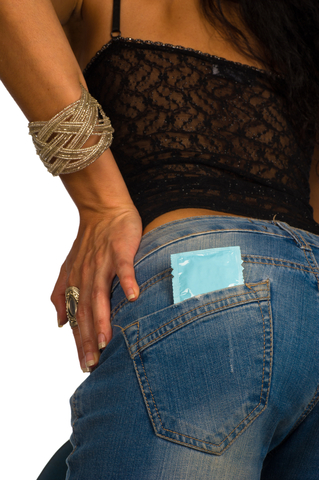 I’ve got something I want to share with you. Sadly, advanced reproductive age has nothing to do with whether or not a woman should use contraception. In fact, according to a literature review published several decades ago, the likelihood of reproductive sterility at age 40 is 40%, and at age 45, 80%. This means that the monthly risk of pregnancy, although declining with less frequent ovulation, may still be as high as 60%, depending on your age.
I’ve got something I want to share with you. Sadly, advanced reproductive age has nothing to do with whether or not a woman should use contraception. In fact, according to a literature review published several decades ago, the likelihood of reproductive sterility at age 40 is 40%, and at age 45, 80%. This means that the monthly risk of pregnancy, although declining with less frequent ovulation, may still be as high as 60%, depending on your age.
In a review published a few years back in the Advanced Access edition of Human Reproduction Update, investigators report that the decline in fertility among women in their 50s remains insufficient to prevent pregnancy. With the exception of hysterectomy, they point to copper and hormonal IUDs, both of which have failure rates of less than 1%.
Additional considerations when choosing a contraceptive method in midlife include:
- Menopausal stage, i.e. how frequent or infrequent are your menstrual periods?
- Menopausal symptoms
- Sexual issues, e.g., desire, lubrication or lack thereof
Although I am not a fan of hormones, selecting a hormonally-based contraception may help to address these particular issues.
So, how long do you need to wear protection? The investigators suggest that contraception should be continued until women become postmenopausal and attain a natural state of sterility. I’d add that if you are having intercourse with more than one partner, that you add another layer of protection — e.g. a condom — to prevent sexually transmitted diseases.
It may be inconvenient, but surely, not as inconvenient (or traumatic) as midlife pregnancy. Do yourselves a favour: use protection!






